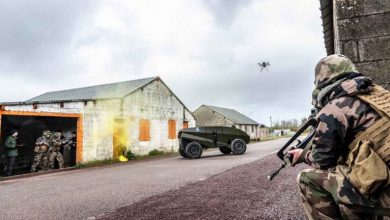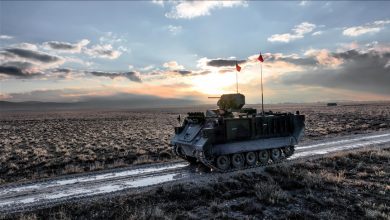İsrail Ordusu: “Hizbullah, Lübnan’ı hiçbir şey kazanamayacağı bir savaşa sürüklüyor”

İsrail ordusu, Hizbullah’ın İsrail’e yönelik saldırılarının arttığını ve bu durumun Lübnan’ı İsrail ile bir savaşa sürüklediğini açıkladı.
İsrailli yetkililere göre Hizbullah, 7 Ekim’de Hamas tarafından İsrail’e başlatılan saldırıda müttefik olarak hareket ediyor.
İsrail Savunma Kuvvetleri (IDF) sözcüsü Jonathan Conricus ise yaptığı açıklamada; “Hizbullah, Hamas ile birlikte hareket ederek Lübnan’ı hiçbir şey kazanamayacağı ama çok şey kaybedeceği bir savaşa sürüklüyor” ifadelerini kullandı.
Jonathan Conricus ayrıca; “Lübnan devleti Gazze’deki teröristler uğruna Lübnan’ın refahından ve egemenliğinden geriye kalanları tehlikeye atmaya gerçekten istekli mi? Bu, Lübnanlı yetkililerin kendilerine sormaları ve cevaplamaları gereken bir soru.” açıklamasında bulundu.
AFP’nin verilerine göre, 7 Ekimden bu yana Lübnan’ın güneyinde çıkan çatışmalarda en az 27 kişi hayatını kaybetti.
Diğer yandan; Filistin Sağlık Bakanlığı’nın verilerine göre ise İsrail, 7 Ekim’den bu yana Gazze Şeridi’ne yaptığı hava saldırılarında çoğu sivil 4,300’den fazla Filistinlinin ölümüne neden oldu.
Kaynak: M5





